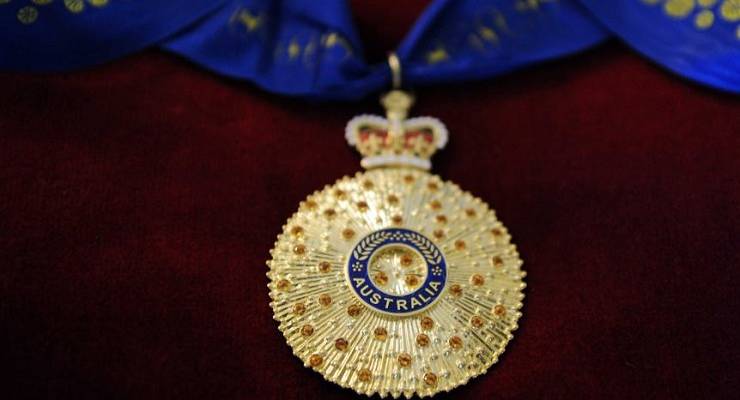
While the Order of Australia claims to represent all Australians remarkably, it appears, there is no Indigenous representative in the body that recommends awards to the governor-general.
According to Inq’s analysis there are no Indigenous Australians in the group of eight community members appointed to the Council of the Order of Australia — nor has there been for eight years.
In a series of stories last month we revealed a pattern of the Order of Australia’s most prestigious awards going to former Coalition politicians and staffers, with close to 70% of all political gongs going to conservative ex-parliamentarians.
We also revealed the partisan culture which has infected the organisation since the election of the Abbott government in 2013.
Inq’s inquiries now show that no Indigenous Australian has been appointed by the government since Tony Abbott became prime minister. (The prime minister of the day appoints community representatives, in theory to reflect the makeup of the Australian community.)
Abbott’s move, carried on since his departure, represents a break from a 25-year convention stretching back to 1988 when the Hawke government appointed the Order of Australia’s first Indigenous representative, Lowitja “Lois” O’Donoghue. O’Donoghue had earlier been awarded an Order of Australia honour for her work in Indigenous welfare.
O’Donoghue held the role until 1998. She was followed by Aboriginal education leader Dr Margaret Valadian (1998-2006); former Western Australian magistrate Dr Sue Gordon (2006-2010) and former Central Australian Aboriginal Legal Aid Service chief executive Dr Patricia Miller (2010-2012).
All brought the real life experience of Indigenous Australia. O’Donoghue was born in the remote Aboriginal community of Indulkana in South Australia. Valadian was the first Indigenous woman to graduate with a full bachelor’s degree from a university.
Gordon was born on a cattle station near Meekatharra, Western Australia, and was separated from her mother and family at the age of four. Miller was born and raised in Alice Springs, growing up on a cattle station until the age of 12.
Abbott’s first appointments of community representatives on the Order of Australia Council included former Liberal Party president and former Northern Territory chief minister Shane Stone AC. Stone famously — and unapologetically — introduced tough mandatory sentencing laws to combat property crime in the Northern Territory.
The move marked Stone out as a divisive figure in the eyes of Indigenous organisations. Shortly after appointing Stone, Abbott controversially reintroduced the award of knights and dames.
The Department of Prime Minister and Cabinet refused to answer Inq’s questions as to why no Indigenous representative had been appointed to the Council of the Order of Australia for the last seven years. The most recent appointment, made to the council one week ago, was Melinda O’Leary, co-founder of Nova Systems, Australia’s largest privately-owned defence company which has signed an agreement with the Australian Space Agency.
It is difficult to know the impact this has had on the proportion of awards given to Indigenous Australians. The Order of Australia secretariat publishes a breakdown of recipients according to occupation or field of endeavour and gender but not cultural or linguistic background.
At the same time, the Order of Australia Council has failed to address the key, long running issue of why it continues to announce awards on Australia Day and on the Queen’s birthday, given the symbolic power of both dates to Indigenous Australia.
The issue was raised after a review of Australia’s honours system in the mid-1990s, chaired by Clare Petre, a public figure who has held senior positions in government, community and media, including NSW energy and water ombudsman.
“The lack of Indigenous representation was raised then,” Petre told Inq. “The structure for the support system underpinning the awards was an issue, still is.
“Many Indigenous people felt the whole system was not culturally relevant to them. There was no sense of any Indigenous design in any of the awards. Many people didn’t like awards being announced on Australia Day, another issue yet to be resolved.”
Petre said the review made recommendations to make the Order of Australia Council “not as white as it is”.
The inquiry was commissioned by a Labor government but its report coincided with the election of the Howard government in 1996. This, Petre said, meant the recommendations were ignored.
“To be honest I think the report ended up being used as a doorstop in parliament,” she said.
“It is very dispiriting for me, to be honest, as the years pass to see the same issues recurring and not being resolved.”
Should the Order of Australia be more representative of Indigenous Australians? Let us know your thoughts by writing to letters@crikey.com.au. Please include your full name to be considered for publication in Crikey’s Your Say column.
Next: the governor-general’s women problem








Let’s get rid of the whole honours system and solve all of the problems at once.
I have no idea why this seems to happen when the racist, misogynist bigots are in power, for the life of me, I really wonder?!
Well said. Another crucial issue constantly ignored. We must keep our shoulders against the wheel to overcome its inertia.
Surely it is obvious. Abbott was a misogynist racist bigot and so are a good deal of the coalition party room as their actions make abundantly clear.